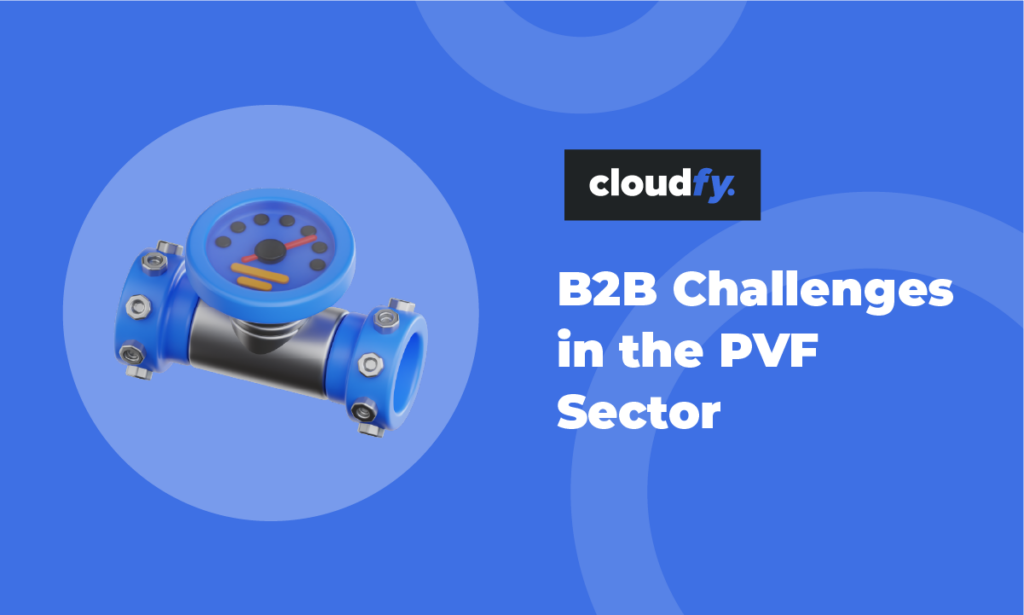What’s the difference and how do you choose between a B2B marketplace vs B2B platform?
As a manufacturer, wholesaler or distributor, you would traditionally think about a business to business (B2B) ecommerce platform for buying and selling. However, more recently, online B2B marketplaces have been growing in popularity.
Marketplace vs eCommerce Platform
A B2B ecommerce platform allows your business to sell its own products or services in your online store while a marketplace allows multiple sellers to sell through the same store.
For your customers there are few differences in their shopping process – they will choose their products, add them to their basket and then go to the checkout to pay. In fact, they might prefer to buy on a market place where they can compare similar products or services easily.
However, for business owners there are some significant differences.
In a more traditional ecommerce operation, you will look after each part of your online sales, from when an order is placed until it is fulfilled. This will normally include storage, processing payments, logistics and taxes, for example.
When you sell on a marketplace the site’s owner and other providers all display and sell their products. It is a sales channel that will allow you to reach more customers. If you are the marketplace owner it provides an opportunity to offer more products and services without having to provide storage, management and fulfillment
If you already have a B2B ecommerce platform becoming a marketplace owner is an option to increase the product range you offer without the extra work of storing, managing and fulfilling them as your sellers take care of their own sales. Membership fees, transaction fees, or service fees can add to your revenue, depending on your business model.
The Benefits of a B2B Marketplace
As a marketplace owner you can reach different markets and segments and generate incremental revenue with little investment or risk.
If you’re considering selling on a third-party marketplace you can add extra sales and increase awareness of your brand and products. For marketplaces with a strong brand, you will also benefit from their reputation to attract different customer groups.
If you don’t yet have your own B2B ecommerce platform then you can start to sell online on a B2B marketplace to test your market and develop your approach.
Choosing between a B2B marketplace and a B2B platform
✓ PRODUCT OFFER – Offering a wider range of products via your existing B2B ecommerce portal can increase revenue but you will need to handle more stockkeeping units (SKUs), provide additional storage and manage extra administration. Alternatively, by becoming a marketplace, you can start to build new partnerships with related brands to offer a wider range of product categories.
If you are considering selling on a third-party B2B marketplace to extend your reach you will want to consider your strategy carefully to be sure you can maintain control of your customer relationships.
✓ OPERATIONAL CONTROL – As a marketplace owner you can retain control of who can sell on your site. You can specify which products can be sold and how sellers behave. Some marketplaces provide automated supplier management and product approval processes to minimize your workload along with a portal for sellers that will allow them to manage their products and track their sales and orders.
For sellers, some marketplaces can be complex and restrictive. This might mean they are best used to introduce your product and brand to new customers with strong incentives for them to buy directly from your own B2B ecommerce platform in the future.
✓ ACTIONABLE INSIGHTS – A marketplace will provide new opportunities and access to new business sectors. Working with different sellers offering associated products and brands will help you to understand new types of customers to inform the next steps of your business development. This might entail an agreement to share data between marketplace owners and sellers so that you can all benefit.
✓ CUSTOMER ACQUISITION – B2B buyers carry out a lot of their research online. If you choose to operate a marketplace you could provide everything they need in one place. By delivering speed and convenience they can view their options before making their choice. With the right product mix you can build loyalty. You might be able to offer products that aren’t available on other sites or run loyalty programs to make sure they continue to place their orders on your marketplace. How successfully you can do this will depend on the incentives you can offer other sellers to continue using your marketplace.
✓ BRAND MANAGEMENT – If your plans for growth rely on a strong brand reputation selling certain limited products on a marketplace could be part of your short-term channel strategy. You can be discovered by new buyers who can then be encouraged to visit your own B2B ecommerce portal for more immersive experiences, additional support, and information or training, for example. Your success will depend on converting new product-focussed customers into brand ambassadors.
The best of both
Your B2B ecommerce platform will allow you to grow and deepen relationships with your wholesalers and customers while a B2B ecommerce marketplace can introduce you to new audiences and help you to plan for future development and growth.
Cloudfy is a best-in-class B2B ecommerce platform for manufacturers and wholesalers. It provides an industry-leading connector to seamlessly integrate with many B2B marketplaces.
Our feature-rich package is specifically designed for B2B ecommerce so you will have everything you need to manage every part of your order and fulfillment process. You can create an all-inclusive sales portal, simplify your processes, and have capacity to scale as your business grows.
Find out how to build your B2B ecommerce future with Cloudfy. Book a free demonstration.






